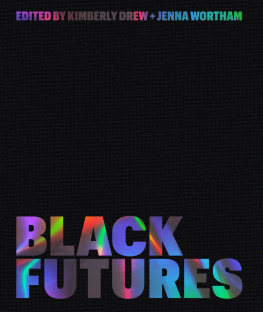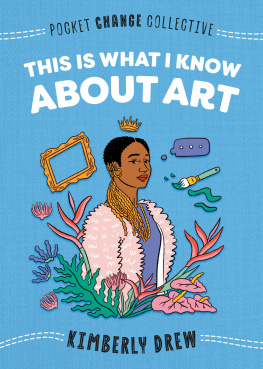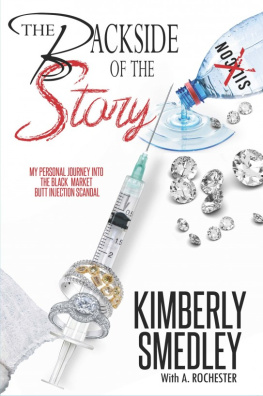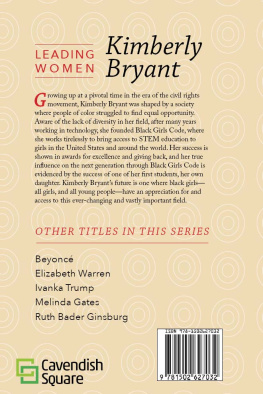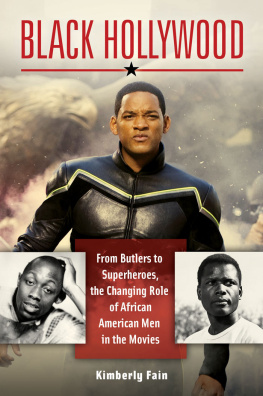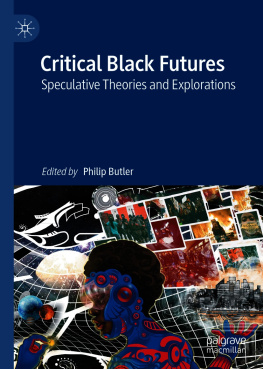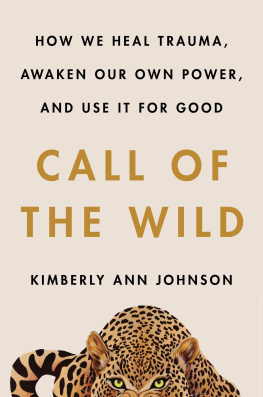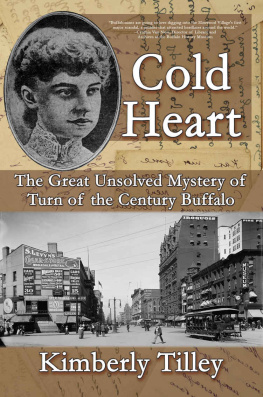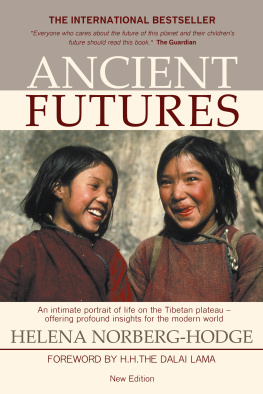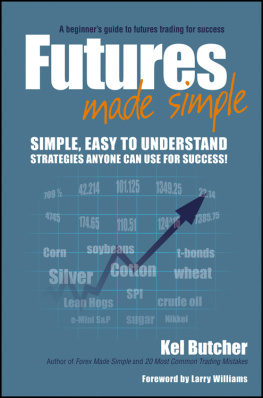Kimberly Drew - Black Futures
Here you can read online Kimberly Drew - Black Futures full text of the book (entire story) in english for free. Download pdf and epub, get meaning, cover and reviews about this ebook. year: 2020, publisher: Random House Publishing Group, genre: Politics. Description of the work, (preface) as well as reviews are available. Best literature library LitArk.com created for fans of good reading and offers a wide selection of genres:
Romance novel
Science fiction
Adventure
Detective
Science
History
Home and family
Prose
Art
Politics
Computer
Non-fiction
Religion
Business
Children
Humor
Choose a favorite category and find really read worthwhile books. Enjoy immersion in the world of imagination, feel the emotions of the characters or learn something new for yourself, make an fascinating discovery.
- Book:Black Futures
- Author:
- Publisher:Random House Publishing Group
- Genre:
- Year:2020
- Rating:3 / 5
- Favourites:Add to favourites
- Your mark:
- 60
- 1
- 2
- 3
- 4
- 5
Black Futures: summary, description and annotation
We offer to read an annotation, description, summary or preface (depends on what the author of the book "Black Futures" wrote himself). If you haven't found the necessary information about the book — write in the comments, we will try to find it.
Black Futures — read online for free the complete book (whole text) full work
Below is the text of the book, divided by pages. System saving the place of the last page read, allows you to conveniently read the book "Black Futures" online for free, without having to search again every time where you left off. Put a bookmark, and you can go to the page where you finished reading at any time.
Font size:
Interval:
Bookmark:
AFFIRMATION
EVE L. EWING
RELATED ENTRIES:
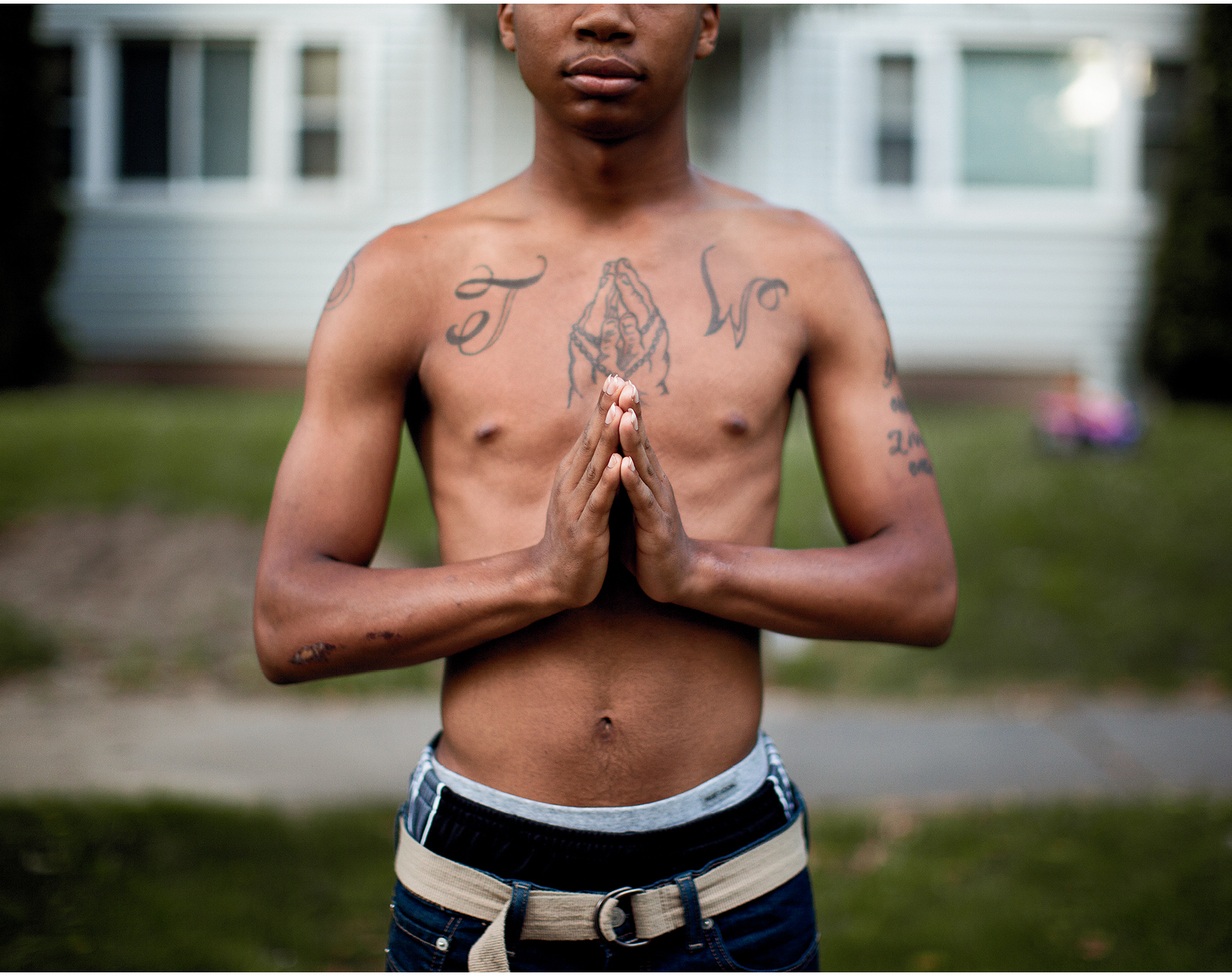
Zora J. Murff
Jaeshawn at 16, 2014
From the series Corrections
Image courtesy of the artist
Here is the story of this poem.
A few years ago, I was doing a poetry show at the type of venue where at the end of the night, the only payment was a wad of cash culled from whatever the take at the door had been, and where artists are therefore encouraged to bring and sell whatever they might have to bring and sell.
I had no book to my name and no enthusiasm about putting together a chapbook for this purpose, and therefore nothing to bring and sell. I decided instead to sell commissioned poems. If people donated a certain amount of money to an organization of my choosing, I would write a poem on a topic they selected. They could do whatever they wanted with the poem, although I reserved the right to publish it if I wished.
The organization I chose is called Liberation Library. They are a volunteer group that provides books to young people who are incarcerated in prisons in Illinois. The books they provide are based on the requests of the young people themselves. I think that detail matters a lot. I believe that for Black people, reading remains a radical act, and the self-determination inherent in choosing what one would like to readthe idea that young people deserve an element of desire, of joy, of autonomy in this regardis radical as well. (I mean this in both senses of the word: Children in prison choosing books for themselves is countercultural and transformative, and it also brings us to the very root of what reading means and what literature is for.)
One person emailed me with a simple request. She said that she did not need a poem. Instead, she asked that I write a poem for the young people themselves, something that I thought would be good for them.
Rather than try to write a poem rooted in identity, I decided to try to write one rooted in utility. I wanted to write something that someone could memorize easily, and therefore call on in moments of distress or uncertainty even if the text was not available. I thought about the many children who I have seen memorize Hey Black Child by Useni Eugene Perkins, or Phenomenal Woman by Maya Angelou, and decided to try to write a poem in that veinone with a structure and series of repetitions that would facilitate memorization. I wanted the poem to focus on the ever-present consistencies of the small miracles of our being. I was also inspired by Assata Shakurs Affirmation poem, which asserts the loveliness of similar small miracles. I believe in living, Shakur writes. I believe in sunshine. / In windmills and waterfalls, / tricycles and rocking chairs.
This is the poem that I ended up with. Its been printed and mailed and tucked inside of books shipped to young people in juvenile detention centers across the state of Illinois. I hope it can serve as a small reminder to them of how miraculous they truly are.
to youth living in prison after Assata Shakur
Speak this to yourself
until you know it is true.
I believe that I woke up today
and my lungs were working,
miraculously.
My voice can sing and murmur and ask,
miraculously.
My hands may shake, but they can hold
me, or another.
My blood still carries the gifts of the air
from my heart to my brain,
miraculously.
Put a finger to my wrist or my temple
and feel it: I am magic. Life
and all its good and bad and ugly things,
scary things which I would like to forget,
beautiful things which I would like to remember
the whole messy lovely true story of myself
pulses within me.
I believe that the sun shines,
if not here, then somewhere.
Somewhere it rains,
and things will grow green and wonderful.
Somewhere inside me, too, it rains,
and things will grow green and wonderful.
Sometimes my insides rain from the inside out
and then I know
I am alive
I am alive
I am alive
EWING
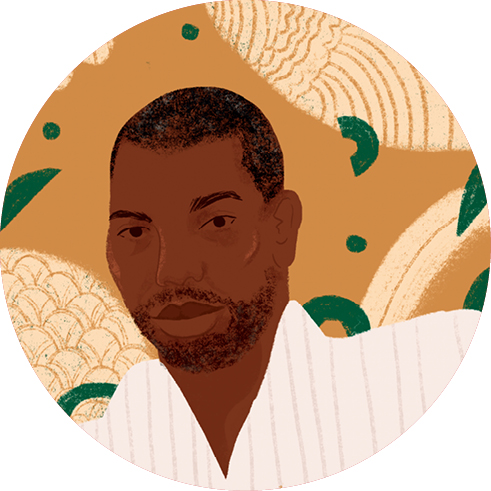 TA-NEHISI COATES AND JENNA WORTHAM
TA-NEHISI COATES AND JENNA WORTHAM 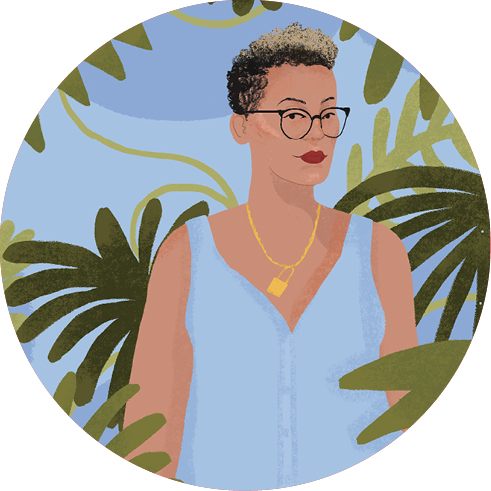
Author illustrations by Loveis Wise
This conversation has been condensed and edited for clarity. It took place at the Portland Book Festival in Oregon in October 2017.
RELATED ENTRIES:
Jenna Wortham: | I find you to be a sunny person. I wouldnt say youre an optimist, but youre generally in good spirits. |
Ta-Nehisi Coates: | I am! Tell them, Jenna, tell them! |
Wortham: | But, you know, there is this kind of Zen-ness to the collection and the book [We Were Eight Years in Power and Between the World and Me] and this almost Buddhist radical acceptance of just, This is the way things are, and I think thats a really hardlike people look to you for answers, they want solutions. Were Americans, we like solutions, we want an app for that, you know. We want there to be a really easy illumination to the exit door, whatever, something better. But you say over and over again, you know, Im not really here to offer that. Theres a part where youre like, I dont believe that White supremacy will be resolved in my life, or my sons life, or his childrens lives. |
Coates: | Is that how I sound? |
Wortham: | Yes! And youre like, Whatll you do when well never achieve racial equality or justice in our lifetimes, and you go, Oddly, this doesnt depress me. And Im like, What? Like, reading this, likehow? I think there is something really beautiful in that acceptance, but youre not saying, Dont fight. |
Coates: | No, Im not. |
Wortham: | Youre saying the resistanceand, I mean, this is from the book, Im paraphrasing itbut the resistance is the reward, and we cant forget that. |
Coates: | Thats right. |
Wortham: | We may not get the results we want in our lifetime, but the struggle is still worth struggling for, and the resistance is the reward. |
Coates: | Look at you! Look at that! |
Wortham: | (Laughs) Im just paraphrasing you! How do you reconcile that? |
Coates: | What Im saying is that whats in between actually matters. Americas young, you understand what Im saying? And so if America struggles with this, you know, for another three hundred years, what is that, you know, according to the long scale of time? African Americans in this country were enslaved for two hundred and fifty years, theyve only been free for one hundred and fifty. Its not been that long. When you think about the other sort of existential problems that this country faces, can somebody reallyand I mean thislook me in the face and say, You know what? We are on the path to getting global warming and the problems with the environment figured out. I think were gonna win. Seriously! Look at the actual record. Human beings fail to figure out big existential problems all the time. In general, people with power dont just hand over that power out of a moral conviction. Thats not actually the history. It took seven hundred thousand people dying for African Americans to not labor under enslavement anymore in this country. Its not moral conviction that moves. So thats the question How are you gonna live? Who are you? Who do you want to be? And for me, thats easy, man! Listen, I take great pride in coming here from this long tradition of people. From the moment we got here in 1619if only because of the position we were inwho among that number [did] not want the world to tip over the ledge. I like that. It makes me feel good about myself; it makes me sunny, as you say. |
Font size:
Interval:
Bookmark:
Similar books «Black Futures»
Look at similar books to Black Futures. We have selected literature similar in name and meaning in the hope of providing readers with more options to find new, interesting, not yet read works.
Discussion, reviews of the book Black Futures and just readers' own opinions. Leave your comments, write what you think about the work, its meaning or the main characters. Specify what exactly you liked and what you didn't like, and why you think so.

